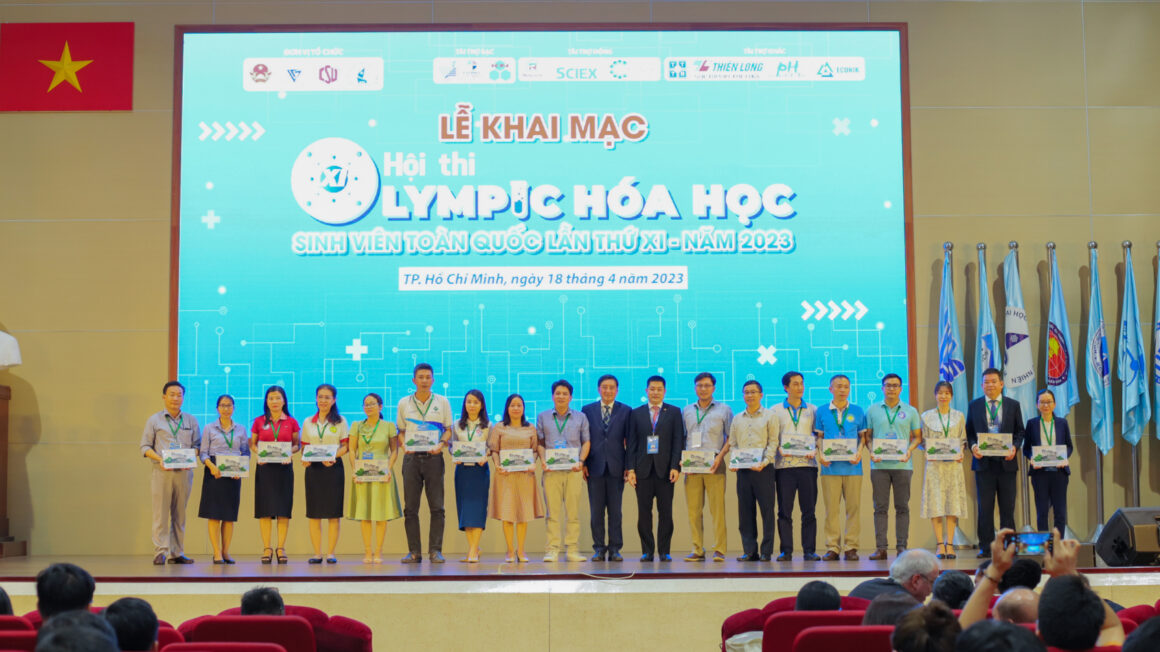On the afternoon of 18th April, the 11th National Student Chemistry Olympiad was organised by the University of Science, Viet Nam National University in Ho Chi Minh City.
Notably, this year’s contest enjoyed the presence of Professor Morten Peter Medal from the University of Copenhagen in Denmark, the recipient of the 2022 Nobel Prize in Chemistry, who attended to share insights from his research on “Click Chemistry” with scientists, lecturers, and students passionate about this field.

The National Student Chemistry Olympiad is a traditional academic event for students who are passionate about chemistry and studying at universities and colleges throughout the nation. First held in 2003, the competition has taken place ten times, chaired by the Viet Nam Chemistry Association, with various universities and colleges hosting it in rotation. Over the years, it has attracted 1,242 students to participate.
In 2023, the event saw the participation of 48 teams comprising 236 contestants from 35 universities and academies nationwide, spanning a range of disciplines including pedagogy, natural sciences, engineering and technology, medicine and pharmacy, agriculture, forestry, fishery, construction, and defence and security.

During the opening ceremony, Associate Professor Trần Lê Quan, President of VNUHCM-University of Science, expressed that the university had implemented a comprehensive preparation schedule regarding organisation and facilities, while also ensuring effective coordination with scientists across the country to develop a suitable and high-quality set of exam questions for the panels.

Associate Professor Nguyễn Trung Nhân, Dean of the Faculty of Chemistry, efficiently organised all facets of the contest, ensuring security and safety throughout the handling of exam questions, as well as the objective, fair, and accurate review and marking of both theoretical and practical exams.

Dr Đỗ Duy Phi, President of the Viet Nam Chemistry Association, stated that the content of the competition incorporates updated knowledge relevant to current issues, aiming to enhance students’ dynamism and ensure they remain attuned to the trends present in enterprises and society.
The contest took place for six days, from 17th to 22nd April. Candidates were allocated 180 minutes for the written examination, which comprised 30 minutes for theoretical questions and 150 minutes for practical experiments. The competition was segmented into three distinct categories predicated on individual capabilities.
- Table A was designated for institutions specialising in chemistry and chemical engineering;
- Table B was for institutions focusing on technology and chemical engineering;
- Table C was for non-specialised chemistry universities and specialised chemistry colleges.




Leave a Reply